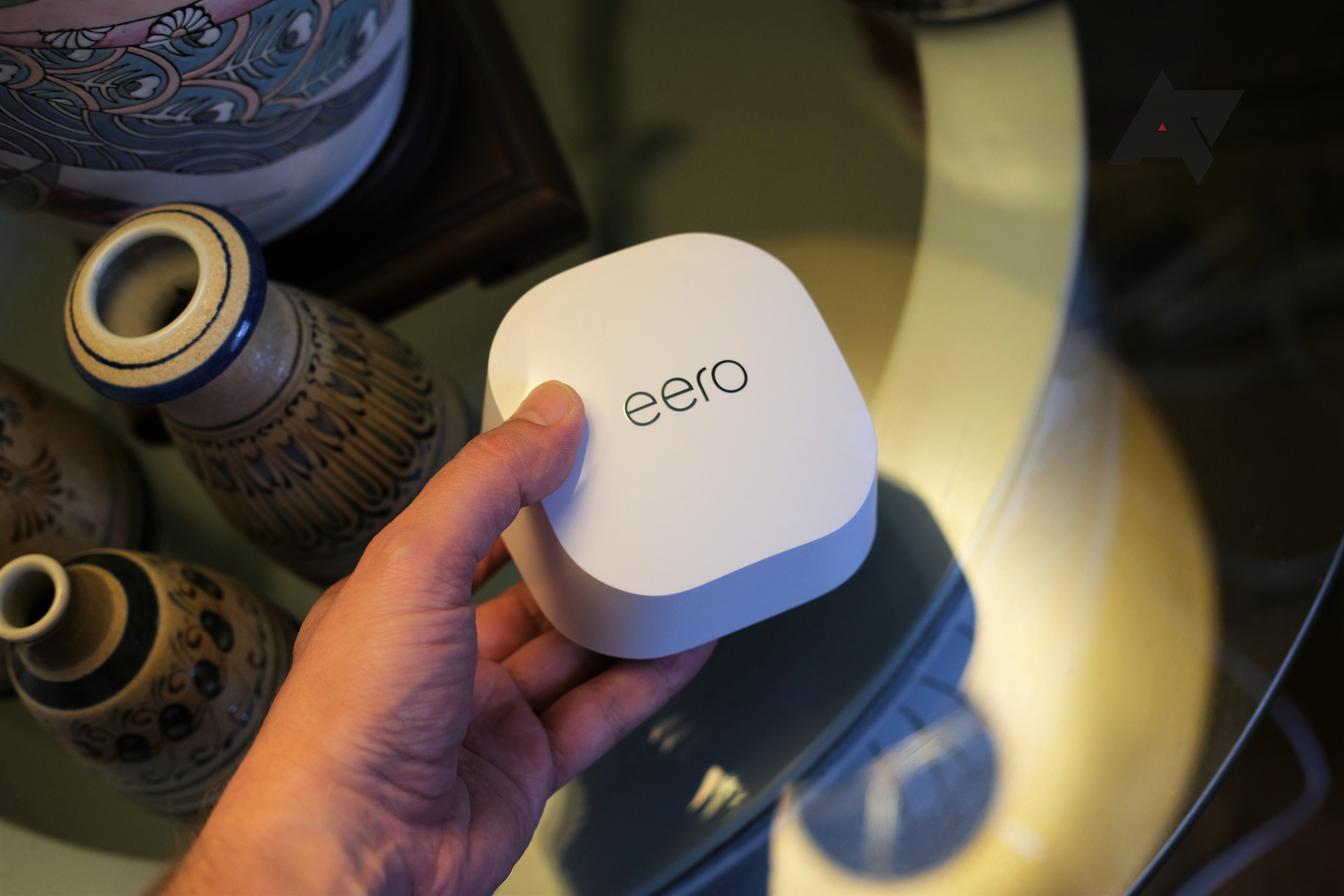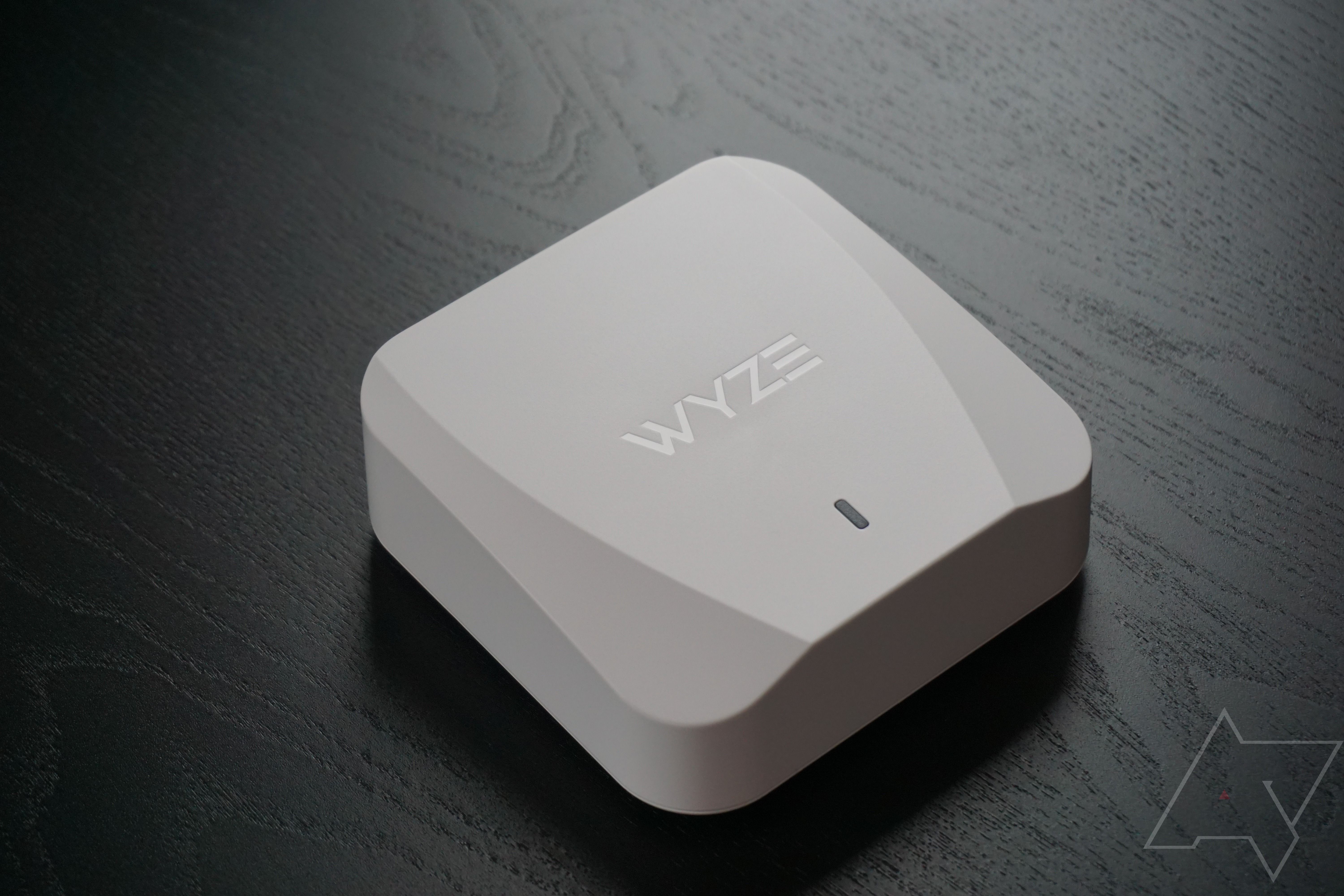Wi-FI 6, also known as IEEE 802.11ax, hit the market in 2022. It has been a game-changer for wireless networking and is still going strong with newly released Wi-Fi 6 devices still hitting the market. Though the first Wi-Fi 7 mesh routers are now here, Wi-Fi 6 is still a great buy. This high-efficiency Wi-Fi version delivers ample bandwidth, with firmware that is designed to optimize channel use and minimize collisions and interference. And the updated version, Wi-Fi 6E, utilizes the 6 GHz frequency band to offer incredible tri-band (2.4 GHz, 5 GHz, and 6 GHz) networking with gigabit speeds.
Wi-Fi 6 and 6E are great for mesh Wi-Fi, which boosts the coverage you can achieve with your router. Rather than struggle with a standalone Wi-Fi 6 router and cheap range extenders, upgrading to a proper mesh system can cover your entire house. By using multiple nodes, mesh Wi-Fi routers can handle the demands of streaming, gaming, and smart home devices simultaneously, without skipping a byte. Unlock gigabit home networking speeds, generous bandwidth, and superb coverage with this round-up of the best Wi-Fi 6 mesh routers.
Upgrade with a top Wi-Fi 6 mesh router
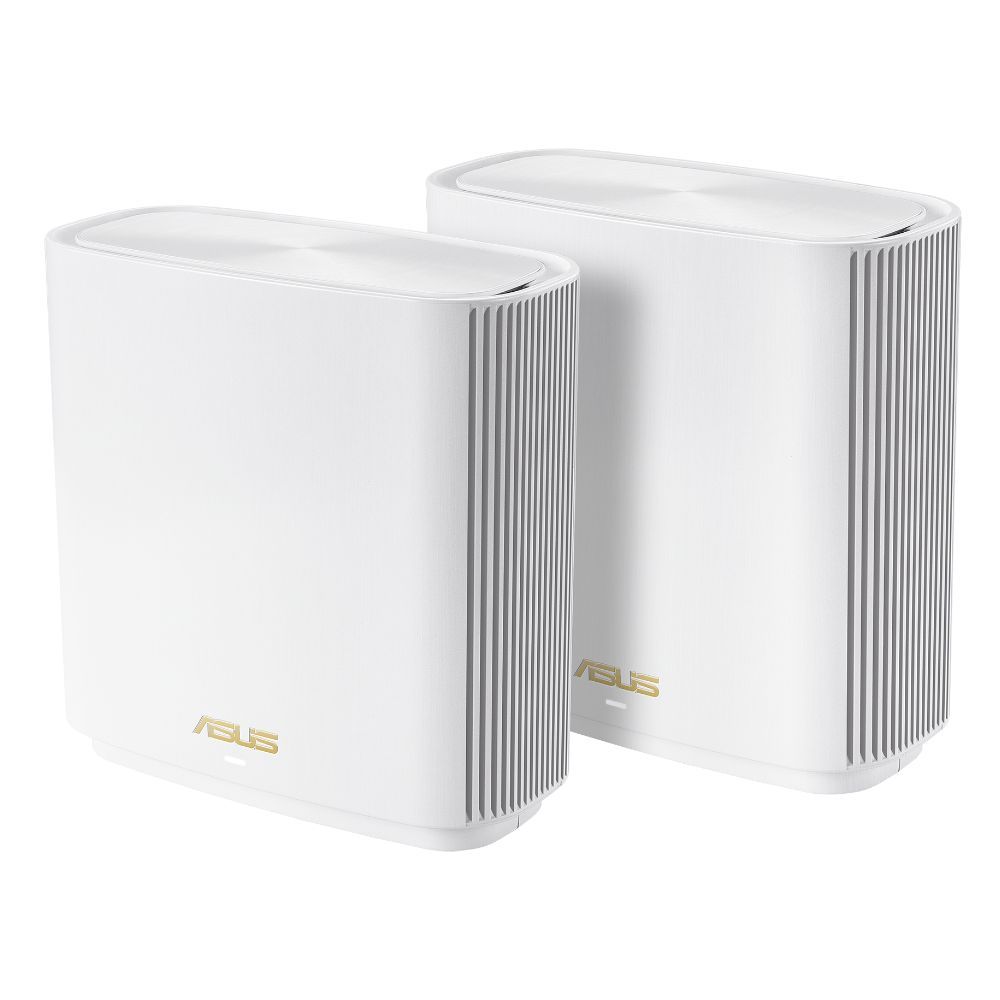
Asus ZenWiFi XT8
The mesh router upgrade your home deserves
If you've been eyeing a terrific mesh router to replace your current system, you don't need to look any further than the Asus ZenWiFi XT8. It packs a whole host of features while offering rock-solid Wi-Fi usability. And most importantly, you aren't required to pay a monthly fee for its advanced features.
- Each node covers a fairly large area
- Tri-band, with a second 5GHz band
- AiProtection Pro is bundled for free
- LAN ports are still 1GbE
- Advanced settings available only on the web
The Asus ZenWiFi XT8 is a solid mesh router with speedy performance and an extensive range. It also packs a lot of free features with AiProtection Pro (powered by Trend Micro) that are rare on other routers or require a paid subscription. The service is completely free and gives you anti-malware protection and parental controls.
The ZenWiFi XT8 is easy to set up, and you can choose to have three separate networks (two on the 5GHz band and one on the 2.4GHz) or a single network that automatically switches between the 2.4GHz and 5GHz bands. Each ZenWiFi node comes with three gigabit Ethernet ports for wired connectivity if you want lower latency for gaming, video conferencing, or other activities. In addition, the mesh router supports the company’s AiMesh technology, so you can add any compatible router as an additional node to the mesh network to expand it further.
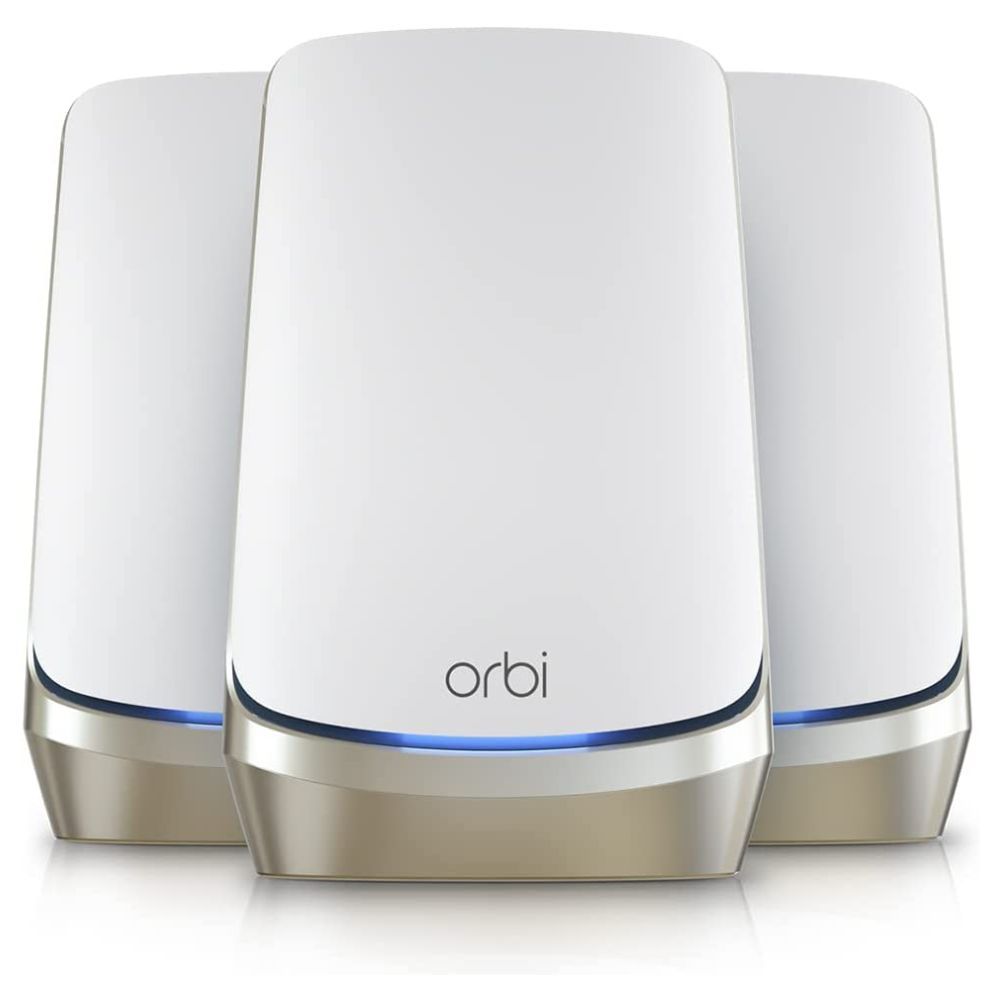
Netgear Orbi RBKE963
The best mesh router money can buy
With price no bar, the Netgear Orbi RBKE960 series gets you the absolute best experience of any mesh router. Its performance is phenomenal, and you cannot go wrong with it, especially if range is a concern for your house. Your beastly multi-gig internet connection will greatly benefit from this Orbi model.
- Blazing-fast performance with Wi-Fi 6E
- Supports 2.5GbE wired backhaul
- Can take up to 10 gigabit internet connection
- No USB ports
- Expensive
For the best-in-class experience, the Netgear Orbi RBKE960 series gets you everything that you can ask for from a mesh router kit. Its range is some of the greatest we’ve seen on mesh systems, with each unit covering up to 3,000 sq. ft. of area. All your connectivity woes can be easily addressed with its two-pack variant, but you can always add more units to expand the coverage to all the floors and even your lawn. But the greatest benefit of this model is its support for Wi-Fi 6E’s third 6GHz band, which helps decongest the network for supported client devices.
The Orbi RBKE963 comes with a dedicated band for wireless backhaul, allowing the three main bands to stay available for your use. But there is a 2.5GbE Ethernet port on the back as well that you can use for wired backhaul or connecting your devices. And if that isn’t enough, the router can take an internet connection of up to 10Gbps, making it the most future-proof mesh system out there. We just wish Netgear didn’t require you to pay extra for its paywalled features, considering the hardware already comes with a hefty price tag.
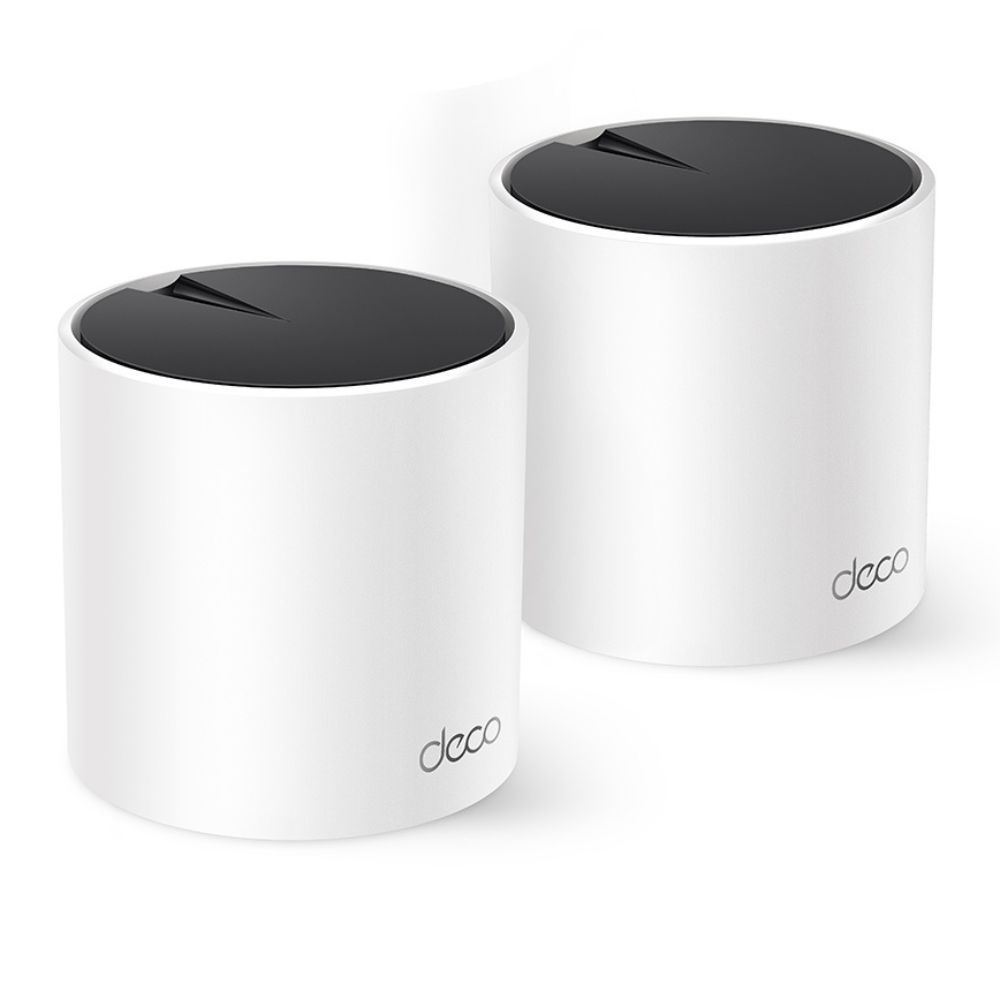
TP-Link Deco X55
Whole home Wi-Fi on a budget
The Deco X55 from TP-Link can help you get started with your first mesh system to fix your patchy Wi-Fi network on a budget. Even its two-pack variant can cover a decently large house, giving you access to super-fast internet in every corner of your home, from the living area to your kids’ room a floor above.
- Supports dozens of simultaneous devices
- Three gigabit LAN ports on each node
- Fairly inexpensive
- HomeShield Pro is an extra subscription
- No dedicated band for backhaul
If you are looking for something on a budget to fill your home with reliable Wi-Fi signals, the Deco X55 could be a perfect fit. With a two-pack, you can cover an area of about 4500 square feet, making the mesh system suitable even for two-storied houses. A good thing is that each node comes with three gigabit LAN ports, and you can use them for wired backhaul for an even more solid connection between each router point. This will come in handy if you want to make the most of your speedy internet connection and improve any latency issues.
The TP-Link Deco X55 is also a great addition to your smart home, considering it can easily work with dozens of connected devices. And this router comes with plenty of smart features, ranging from the support for Alexa for quick voice controls to the bundled HomeShield conveniences, like security scans and basic parental controls. You can pay $6 per month for the Pro subscription to unlock even more advanced options for extra network protection or give your children time rewards.
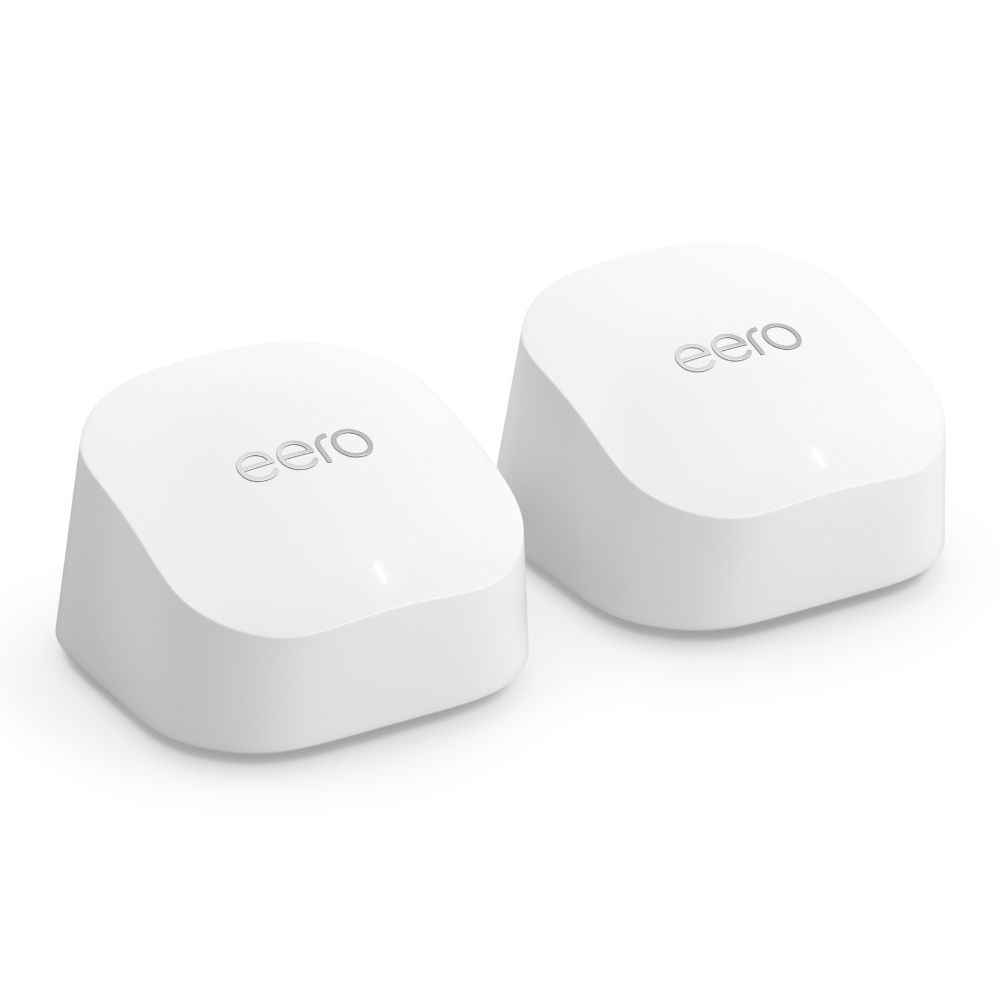
Eero 6+
Fits right in your Amazon-powered smart home setup
The Amazon Eero 6+ is a step up from its predecessor and now supports up to gigabit connections to keep up with your rapidly expanding smart home setup. While it comes with many handy features, it is still easy to operate with its neatly laid-out phone app.
- Easy to set up and use
- Zigbee built-in
- Works with gigabit connections
- Noticeable latency in gaming
- A lot of paywalled features
You can finally use the Amazon Eero 6+ with your gigabit connection, which is double what its predecessor supported. So, you don’t need to spend a lot of money on a high-end mesh system to work with your high-speed home internet. Much like most Eero routers, this model also comes with Zigbee built in, saving you from setting up a dedicated hub for your smart home devices. And since it comes from the house of Amazon, it integrates well with Alexa.
In our review, we found the wireless performance of this mesh system to be impressive across the house. You can get a three-node system to cover an average-sized home with solid reception. The Eero 6+ improves the movie streaming performance by reducing the delay, but there was some latency when streaming an online game. Amazon makes up for it with a clean phone app that is easy to use without needing to mess with complicated web interfaces.
Read our full Eero 6+ review.
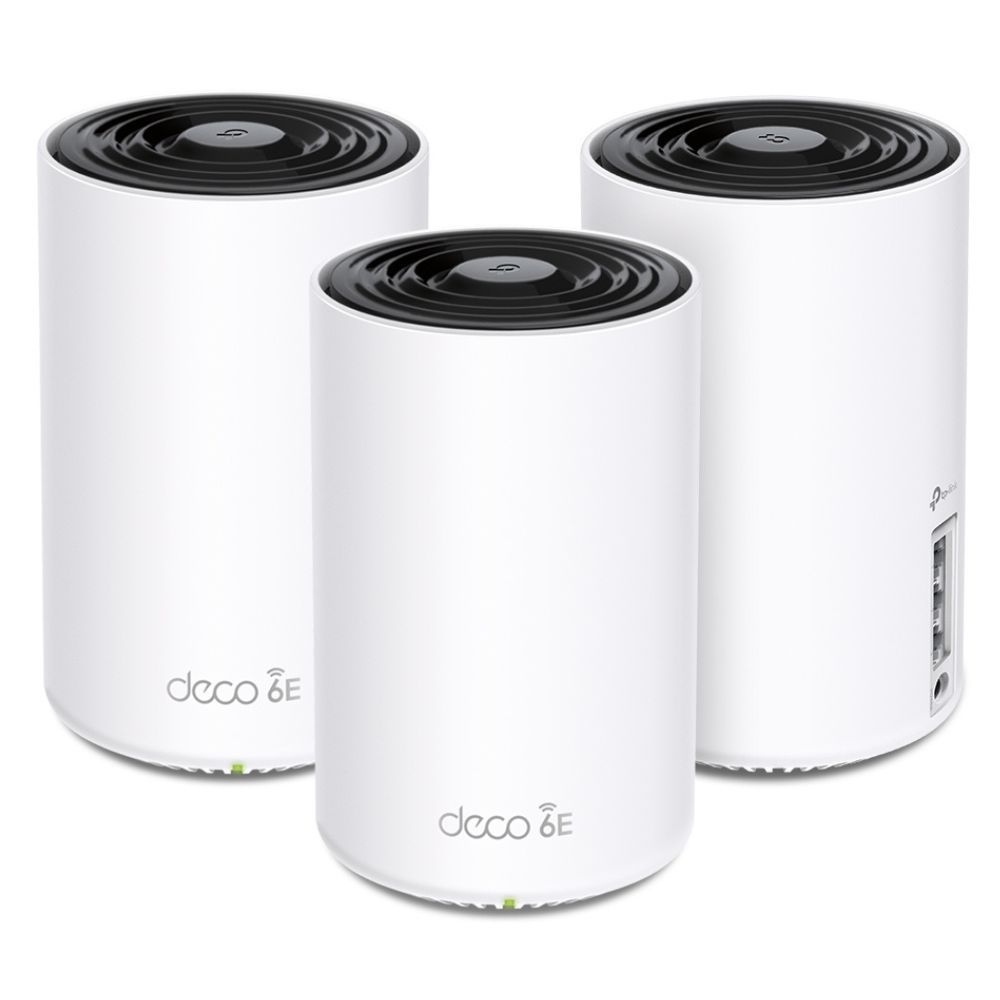
TP-Link Deco XE75
Fix network congestion with a third 6GHz band
For future-proofing your home network without going over budget, the TP-Link Deco XE75 nicely fits your bill. The third 6GHz band is perfect for gaming consoles and work machines needing a more reliable internet connection. And this router system offers an excellent range, so you won’t need a lot of nodes around your house.
- 6GHz band helps with network congestion
- Each node provides ample coverage
- Three-gigabit ports on every unit
- Lacks multi-gig ports
- Not the smallest footprint
These tower-shaped mesh routers from TP-Link don’t cost a bomb but still give you access to the latest mainstream tech in-home Wi-Fi. With the Deco XE75, you can add a third 6GHz band to your home network for devices with critical workloads, like your office laptop — or even your gaming console because game time is as important! The 6GHz band is typically way less congested than the traditional 2.4GHz and 5GHz bands. And if you have multiple mesh router units spread strategically across your entire house, you will get a better range with this new band as well.
TP-Link has included three-gigabit ports on each node, so you have plenty of LAN ports accessible for home use, though you can always hook a switch to add more Ethernet ports. The router cannot handle anything above a gigabit connection, which is acceptable for a product of this class. But the company could still have included a 2.5GbE port for offline wired connections, like for a network storage unit. Being a Deco-branded router, there is a separate Deco app for setting up and managing the system. In addition, you have access to TP-Link's HomeShield features with the paid Pro upgrade.
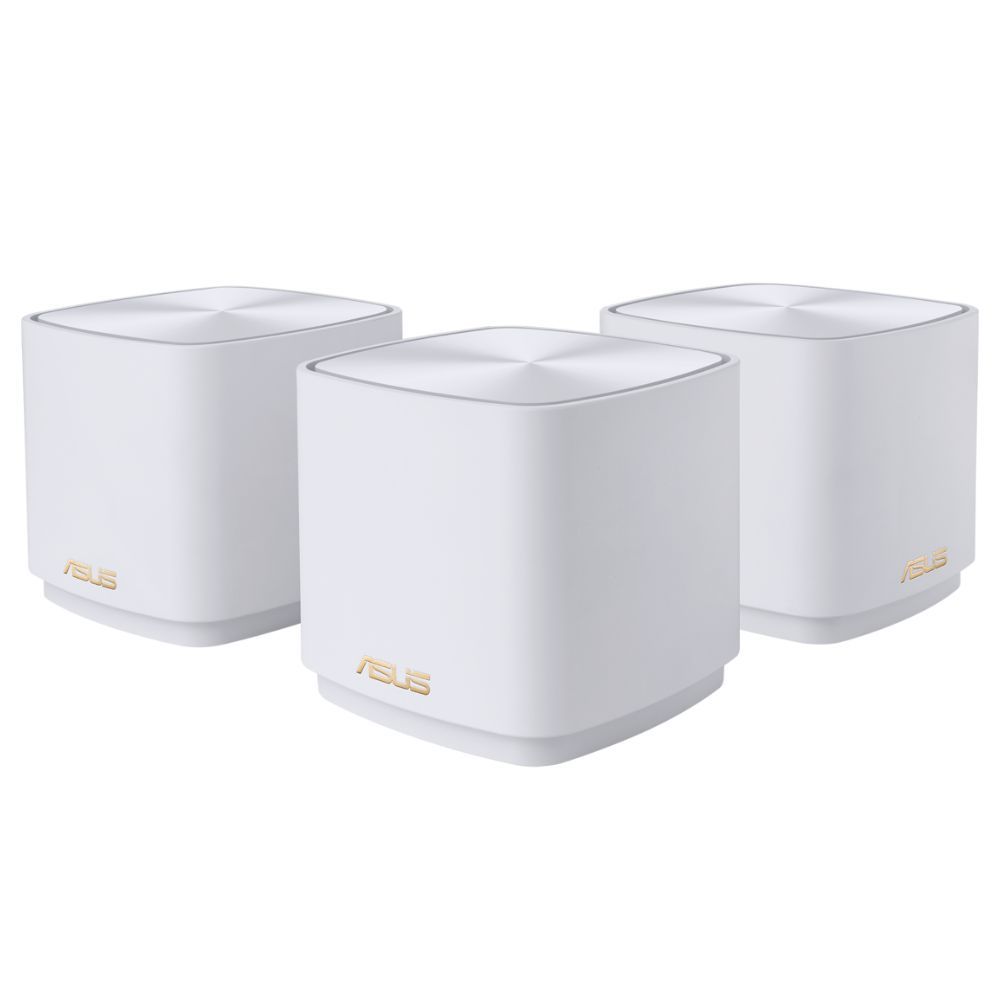
Asus ZenWiFi XD5
Dead spots in your house will be a thing of the past
You don’t need to spend top dollar to get all the benefits of an Asus router, such as a lifetime free security suite and a feature-packed companion app. The ZenWiFi XD5 does all that and more to get your entire family a reliable Wi-Fi experience around a large house.
- Reliable whole-home coverage
- Lifetime free security suite
- Covers a large area with the 3-pack
- Not a lot of spare LAN ports
- Has fewer QoS and parental control features
Besides its ZenWiFi XT8 mesh kit, Asus offers the ZenWiFi XD5 as an affordable Wi-Fi 6 mesh router for consumers who don't wish to spend north of $500 on their mesh purchase or have a sub-gigabit internet connection. The XD5 is a reliable mesh system, and you can get its three-pack for well under $300, which will cover up to 5,000 sq. ft.
In other highlights, each unit of this dual-band mesh router comes with two gigabit LAN ports for wired networking, and one of these doubles as a WAN port. While XD5's feature set isn't as expansive as the XT8, you still get more than the essentials, such as QoS support, wired backhaul, network protection, parental controls, VPN support, and guest networking. AiMesh technology is also available if you want to connect another AiMesh-enabled router to your mesh setup. Finally, it's pretty easy to set up using the companion app or the web interface.
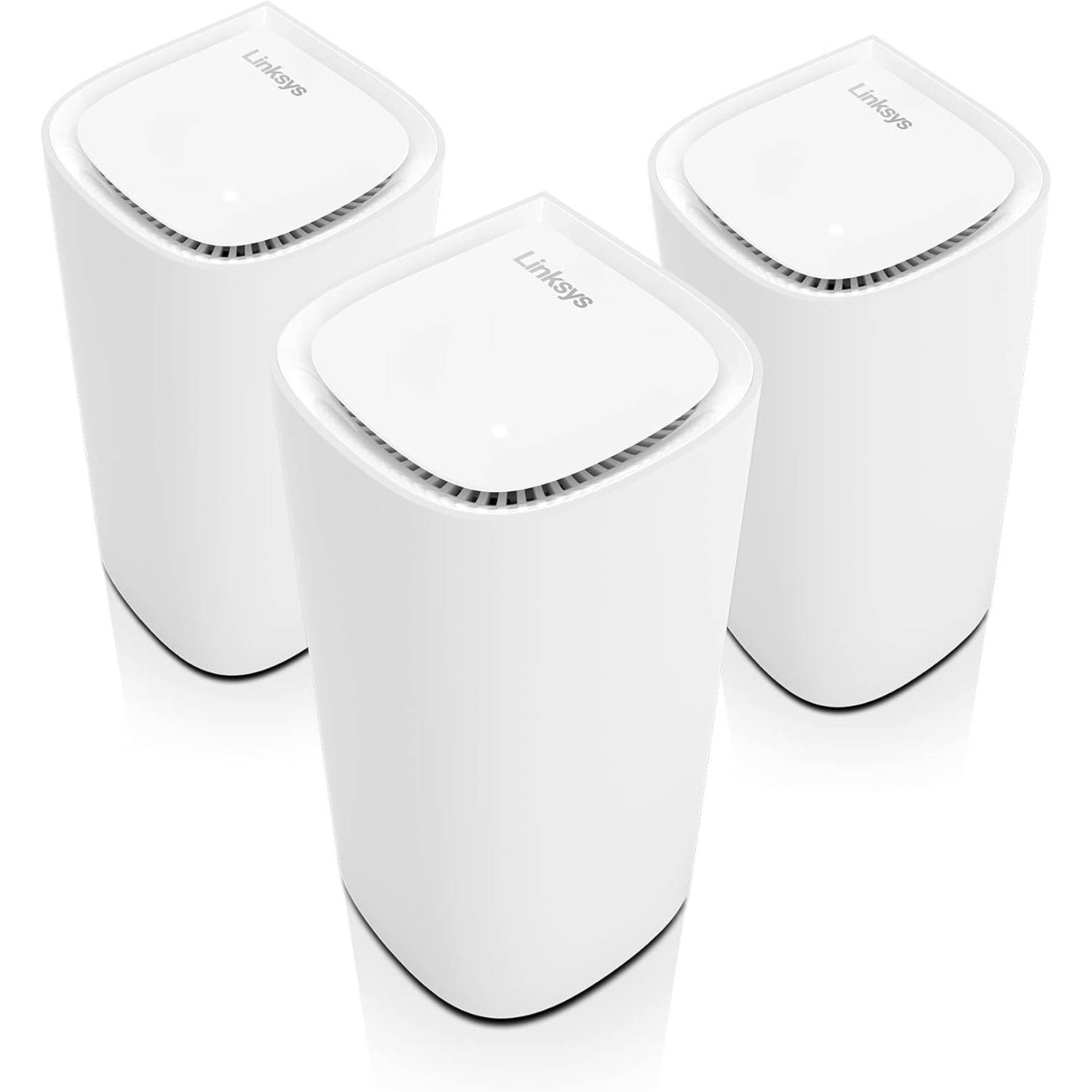
Linksys Velop Pro WiFi 6E Mesh Router
Coverage and bandwidth for large homes and many devices
Linksys' Velop Pro Wi-Fi 6E Mesh Router is a competent tri-band mesh router. Its three MU-MIMO nodes are capable of providing multi-gigabit speed coverage over a 9,000 sq-foot area. Though this mesh Wi-Fi system doesn't include extras like multi-gig ports or anti-malware, it has 160 MHz channels that offer superior bandwidth for over 200 devices simultaneously.
- 3-pack covers a large property easily
- IPv6 Compatible
- Strong tri-band performance
- No gigabit ports
- App has limited functionality
- Solid walls will reduce stated coverage
Larger homes need mesh Wi-Fi that provides broadband connectivity throughout the building without dead zones. Linksys' recently released Velop mesh system is a capable choice that is cheaper than premium options like Netgear's Orbi. It doesn't have extras like antivirus or parental controls, but this three-node set does deliver excellent tri-band coverage of up to 9,000 square feet, especially if your property doesn't have solid block walls.
Another plus is that it is an IPv6 router. By enabling this next-gen internet protocol, you'll experience efficient data packet transfer with minimized collisions and no Network Address Translation (NAT), which consumes memory and processor space. This future-forward buy can also achieve speeds of up to 5.4 Gbps, though it's a shame that the ports are few and non-gigabit.
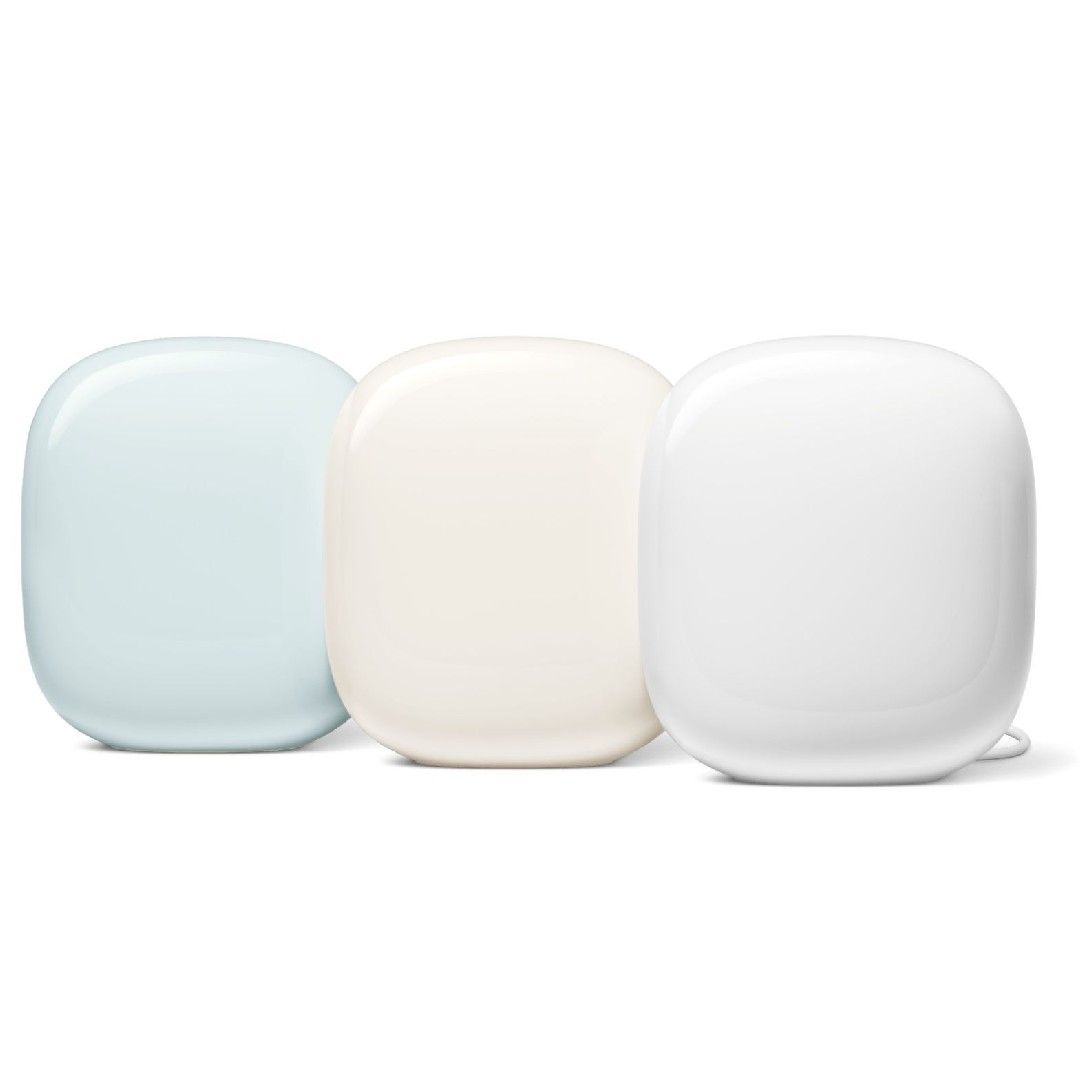
Google Nest Wifi Pro
Your Google Nest speakers are going to love having a pal
The Google Nest Wifi Pro jumps straight to the newer Wi-Fi 6E standard, offering you the third 6GHz band. Unlike with most other routers, you don't have to spend anything every month just to access its features — everything comes bundled with the upfront price. And since it's a Google product, it integrates seamlessly with your Google Assistant-powered smart home setup.
- No subscription fee attached
- Easy to set up and use
- Integrates seamlessly with Google Assistant
- Ethernet ports should have been multi-gig
- Parental controls are not the most fleshed-out
Although "Pro" may suggest a professional-grade router, the Nest Wifi Pro is far from that. Instead, it's an entry-level Wi-Fi 6E mesh router for users who don't want to deal with complicated router settings and prefer a no-frills option. It's also the first router in the company's portfolio to offer faster speeds than Wi-Fi 5. The router looks good, and you can choose from four color options to match the aesthetics of your home. In addition, Google promises a coverage area of around 2,200 sq. ft. per node, which aligns with competitors' offers.
You get three wireless bands: 2.4GHz, 5GHz, and 6GHz. Plus, there are two gigabit LAN/WAN ports per node that you can use for a wired connection to your devices or a wired backhaul. Unfortunately, as the Ethernet port is limited to gigabit speeds, the mesh router is only suitable for sub-gigabit connections. Otherwise, the Nest Wifi Pro delivers consistent performance and reliable speeds. It's also easy to set up, and everything is managed within the Google Home app.
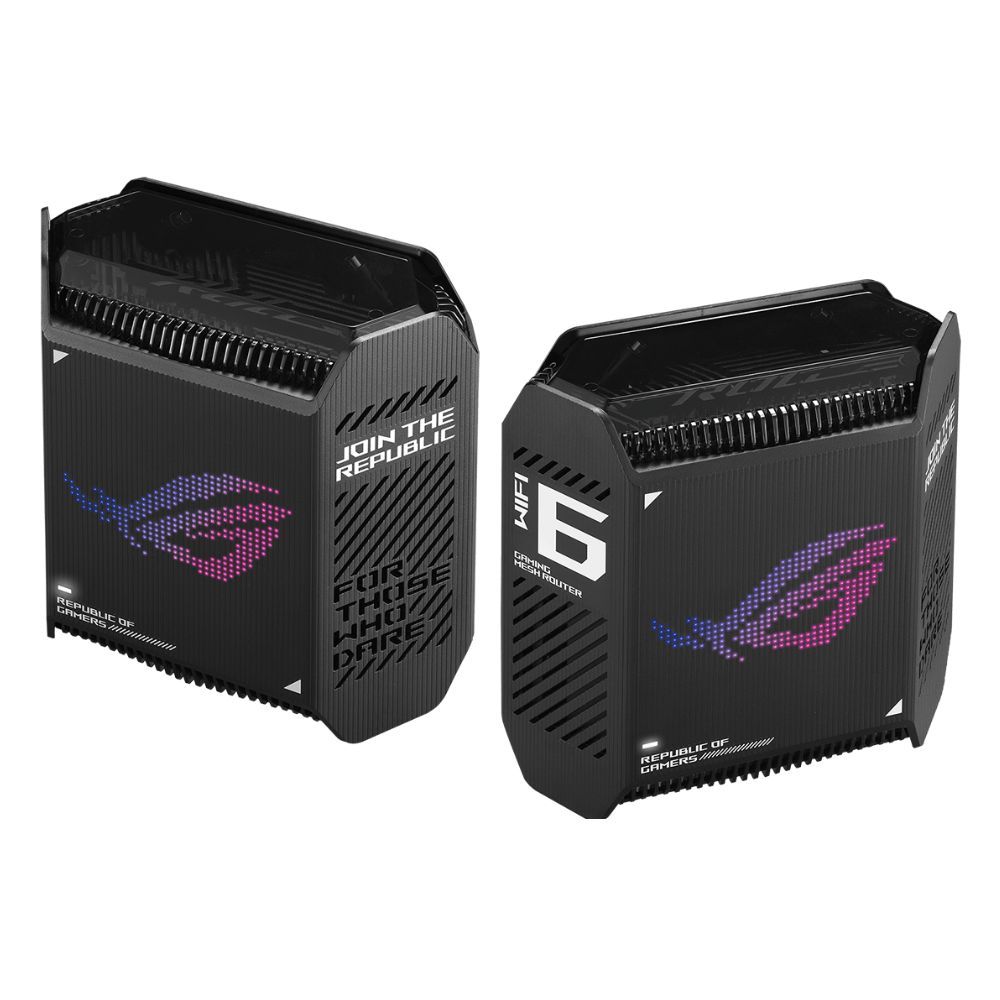
ASUS ROG Rapture GT6
All kinds of advanced users will be happy with this
The Rapture GT6 comes with a dedicated band for wireless backhaul that ensures a solid connection between two nodes for better network stability, especially for the devices connected to the satellite units. This means no matter where you’re in the house, your gaming performance won’t take a hit at all. And not just gaming, its beefy internals are capable of supporting all kinds of advanced use cases.
- Dedicated backhaul band
- Multigig ports on each unit
- Excellent performance
- Pricey
- No Wi-Fi 6E, so no 6GHz band
Gaming-focused devices tend to be flashier than other options, and this ROG-branded Rapture GT6 takes the crown of being the most eye-catching router you will ever see. It comes with a rather angular overall design, while the front comes with colorful LED lights that peek through a mesh (no pun intended), making you want to show the router off on your desk. Its gaming-centric additions are on the inside, too. For instance, you get a few QoS settings that can smartly prioritize any gaming traffic, be it from your PC or a mobile device to ensure minimal lag.
But the Asus ROG Rapture GT6 isn’t all about these fancy features. In fact, it is one of the fastest routers you will find among mesh routers when paired with a gigabit connection. If you’ve been struggling to get proper reception on your laptop, say during video calls, this will be your perfect mesh upgrade. A great thing about this router is that all its nodes are identical, meaning any one of them could be the main router and each unit will get you plenty of high-speed LAN and USB ports.
Even though Asus has priced it a little high, you will be saving a bunch of cash in the long run. That's mainly because Asus bundles its premium security and parental features with this router without any monthly fee attached, something you have to worry about with other brands.
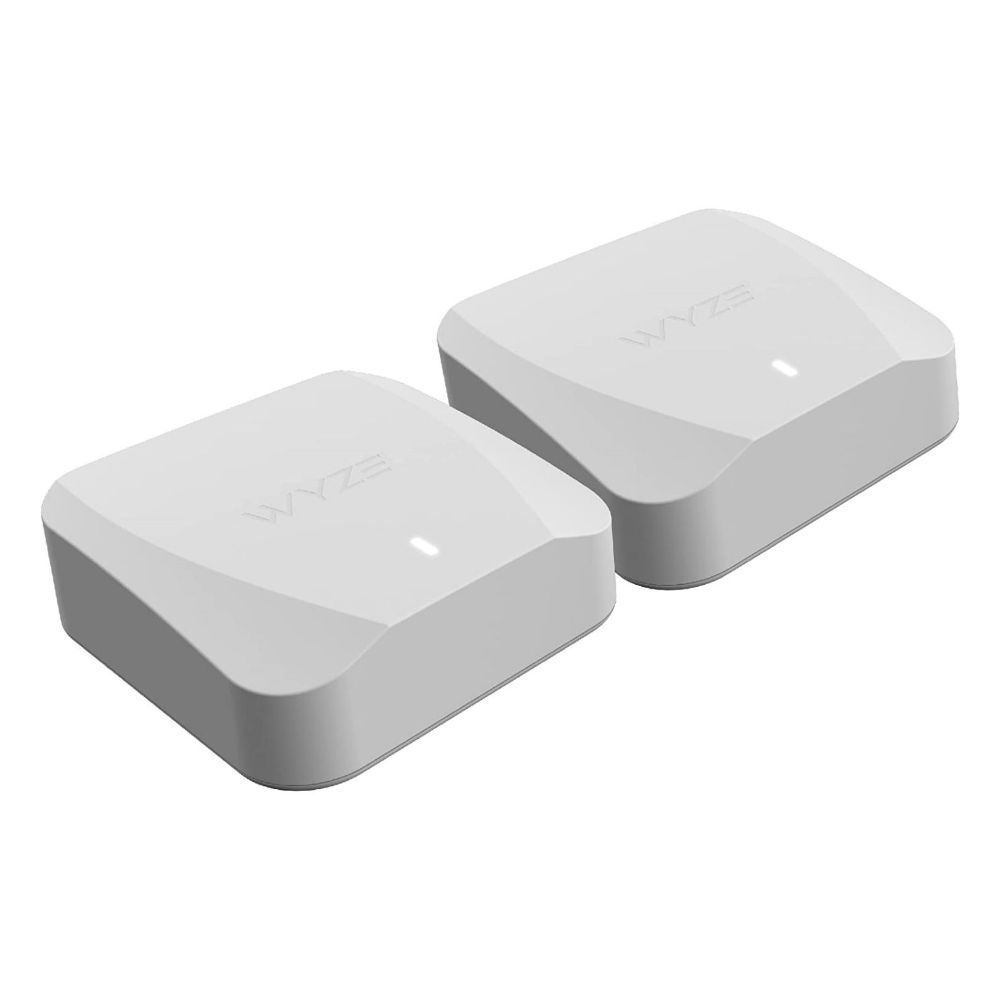
Wyze Mesh Router
Going with Wyze may indeed be wise for your home
The Wyze Mesh router is inexpensive and could be the way to go if you don't have a lot of requirements. But an affordable price doesn't mean fewer features. You can get started with it in just a few minutes, and its app is a feature-packed command center in your palm. More importantly, its signal performance is reliable with minimal latency.
- Set up is straightforward
- Supports dozens of devices
- Comes cheap
- Parental controls are not the best
- Only two Ethernet ports
Primarily known for its affordable smart home products, Wyze entered the mesh router business in late 2022, and its first mesh networking kit — the Wyze Mesh Router — is pretty good for a budget Wi-Fi 6 option. You can get it in single, two-pack, and three-pack options, with a single router capable of serving up to 1,500 sq. ft. area.
Like the Asus ZenWiFi XD5, each dual-band Wyze Mesh Router unit also features two WAN/LAN ports. Other features include parental controls, wired backhaul for faster connectivity on satellite units, and network security. Plus, you can install it pretty easily using the company's app, which also gives you access to most of the basic router settings. Lastly, each router can support up to 50 connected devices.
Read our full Wyze Mesh Router review.
Should you consider a wired backhaul?
Mesh router nodes typically rely on a wireless backhaul network to "talk" to each other and seamlessly hand off your client devices from one node to another as you move around the house. This is because the coverage and penetration of radio waves at 5 and 6 GHz is far lower than at the 2.4 GHz frequency, so data often needs to hop from node to node before it is transferred to the internet. But as with everything wireless, backhaul connectivity may not always be dependable, especially if nodes are too far apart, or you're dealing with solid walls.
By connecting your mesh system's nodes with a high-speed Ethernet cable, you can make the backhaul more reliable with super-low latency. At the same time, you'll free up the 5GHz band for use by devices near any node.
Lay a high-speed Ethernet cable across your house to connect nodes and prevent network issues caused by an unreliable wireless backhaul. However, you need to be sure that the Ethernet ports on your router offer gigabit connectivity to achieve the best speeds. To ensure your wired connection is future-proof, you should go for a Cat 6 or higher Ethernet cable, preferably one that supports up to 10Gbps transmission speed, so you don't have to upgrade it for a good few years.
Additionally, make sure the mesh router of your choice has enough LAN ports on each unit. There should be spare ports even after accounting for wired backhaul for connecting devices like your gaming console or a NAS over a LAN cable.
Wi-Fi 6 or Wi-Fi 6E?
With Wi-Fi 7 on the horizon, you'll need a Wi-Fi 6E that includes the 6 GHz frequency band will deliver the longevity you need. Choose feature-packed mesh Wi-Fi that offers tri-band networking, works with the IP6v4 internet protocol, or includes decent anti-malware or parental controls. Of course, security is essential, and the router should protect your data with the Wi-Fi Alliance's latest WPA 3 security certification.
If you need to connect devices directly to the Ethernet ports on your router, you'll need to carefully assess the mesh system you choose. Opt for a mesh system that offers plenty of spare LAN and USB ports on all the nodes and not just on the main router unit, so you can connect a NAS or games console. Routers with multi-gig ports will future-proof your system for faster transfers over your home network if you upgrade your internet connection down the line.
Taking all this into consideration, our recommended Wi-Fi 6 mesh router is the Asus ZenWiFi XT8. It's an all-rounder that's suitable for most households who are looking to upgrade their home network. It is adequate for gigabit internet connections and offers rock-solid performance without any issues. Plus, you get all the perks of owning an Asus router, particularly the bundled security suite, well-thought-out app, and parental controls.
If price is not an issue, choose the Netgear Orbi RBKE963, the current market leader. This top-of-the-line router does everything you expect from a premium mesh system and more, and its tri-band connectivity gives you the longevity you expect from a big-ticket buy. Orbi mesh Wi-Fi is highly scalable, so you can easily add additional nodes to get high-speed coverage in dead zones. Those on a tight budget need not worry, as the TP-Link Deco X55 offers excellent value for your money, with competent mesh networking that can support up to 150 devices with a strong connection.

Asus ZenWiFi XT8
The mesh router upgrade your home deserves
If you've been eyeing a terrific mesh router to replace your current system, you don't need to look any further than the Asus ZenWiFi XT8. It packs a whole host of features while offering rock-solid Wi-Fi usability. And you aren't required to pay a monthly fee for its advanced features.

